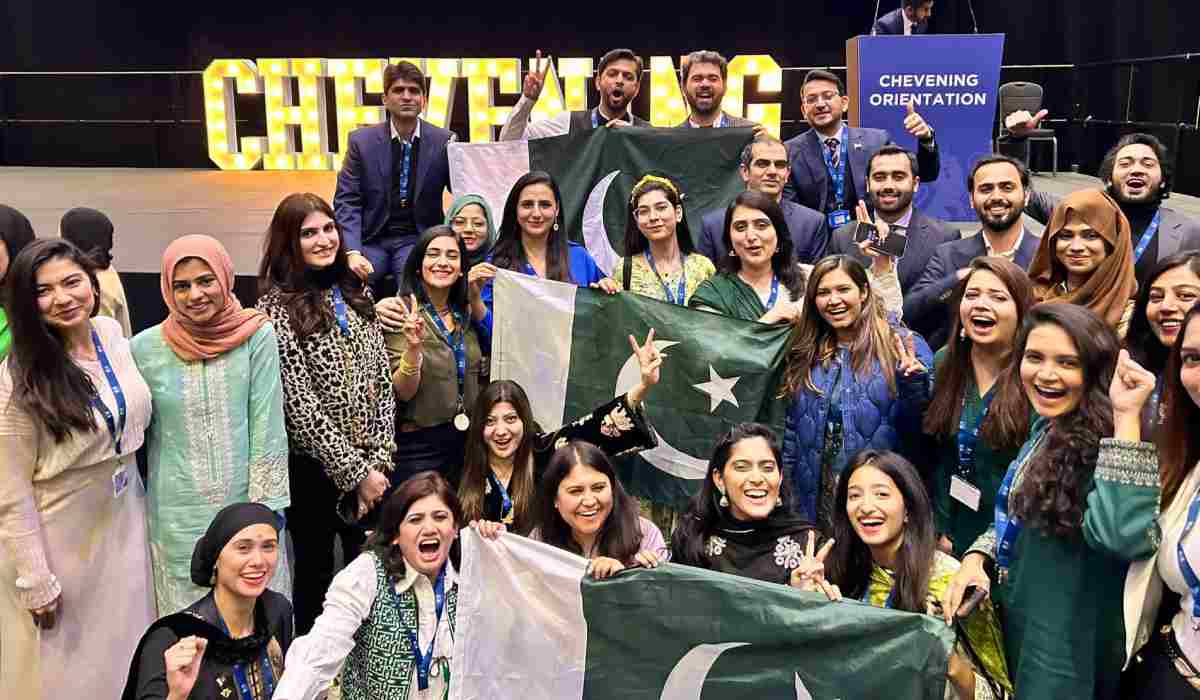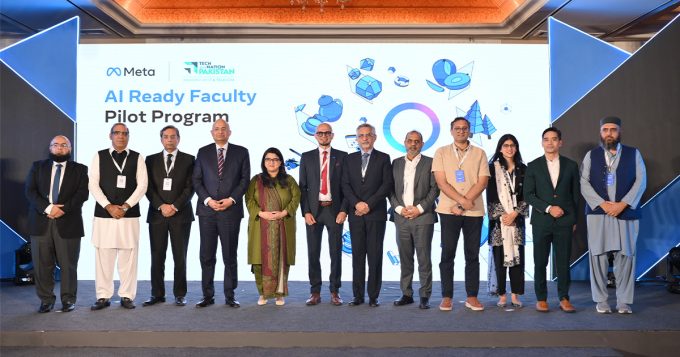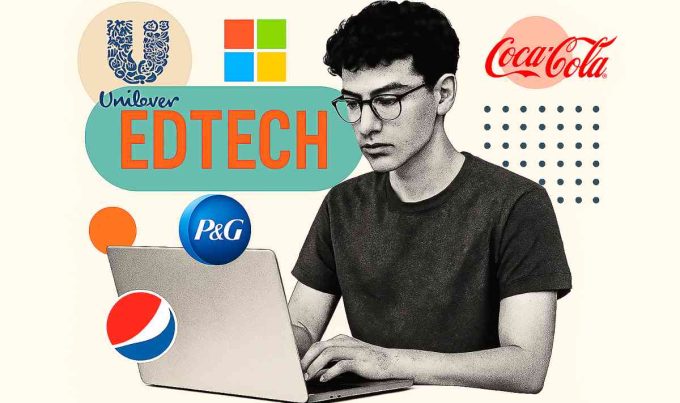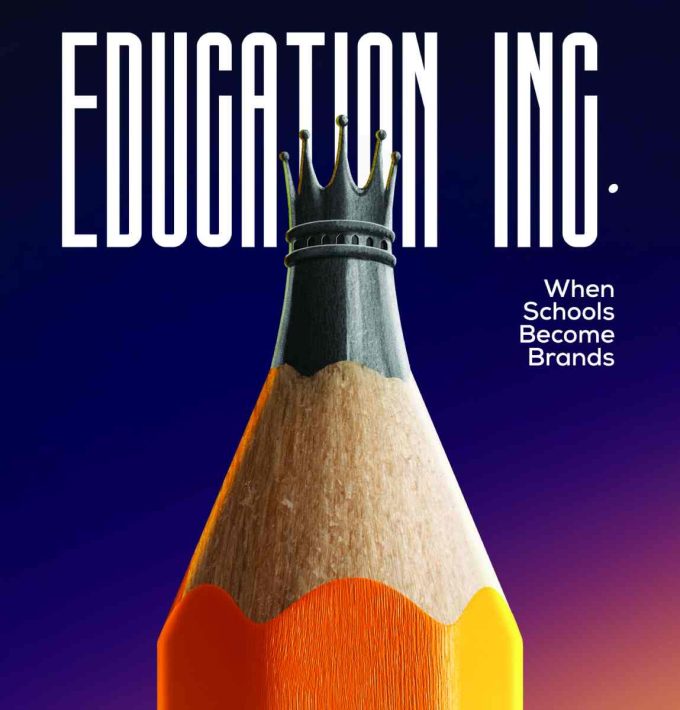Every single story shared in this article is a reminder that Pakistan’s strength does not lie solely in its export of talent but in the brilliance that returns to build something better. This piece offers only a small window into that growing community of exceptional individuals: the Brain Gain of Pakistan. A force that deserves not just recognition, but celebration.
The Brain Drain
We love a good success story, especially one that ends with a visa, a boarding pass, and a job offer abroad. In Pakistan, leaving the country has long been seen as a badge of honour. It is the default dream: settle overseas and earn in dollars. From school classrooms to office corridors, we are taught, explicitly and implicitly, that making it means leaving it all behind.
This mindset runs deep. How often do we hear, “Yahan kuch nahi bacha,” “Bahar kaafi scope hai,” “Bus bahar settle hona hai,” in conversations? These aren’t just passing comments. They reflect a deeper mindset that has quietly taken root, and feeding into it is a term called ‘brain drain’ that has lately become part of our national vocabulary. It captures our collective anxiety over the exodus of talent, the fading of hope, and the never-ending chase for the greener pastures beyond.
In our growing obsession with who is leaving, we rarely ask: What about those who come back? Because here, return is often mistaken for failure, “Visa expire hogaya?”, “Job nahi mili?”. The assumption is automatic: something must have gone wrong. Returning home is seen not as a decision, but a consequence.
The Power of Returning
Returning, however, is not always a story of failure. Each year, hundreds of Pakistanis (both students and professionals) leave Pakistan and later return with a purpose. For them, true success is not defined by earning a degree abroad. It begins when they bring that learning back home. And yet, their stories are rarely told.
These returnees are the extraordinary scholars from Pakistan, individuals who push boundaries, challenge norms, and defy the odds to compete on fiercely competitive global stages. They secure admission to some of the world’s most prestigious universities. Often pursue what are regarded as highly sought-after degrees in developed nations, and yet they choose to return.
Some may argue that scholarship conditions, such as mandatory two-year return clauses in some cases, leave them with little choice. But obligation alone does not explain conviction. What stands out is not just their return. But how they reinvest their skills, networks, and global exposure back into Pakistan’s future. For many, coming back is not just about tick-boxing a requirement. It is about fulfilling a commitment to contribute where it matters most.
Prestigious Scholarship Programmes
Pakistan qualifies for the majority of the world’s prestigious scholarship programmes. Most of these programmes primarily support master’s and PhD degrees and, in select cases, postdoctoral research opportunities. Due to their fully funded nature, these scholarships are highly competitive and sought after.
For example, the Fulbright Scholarship Programme, administered by the United States Educational Foundation in Pakistan (USEFP), is one of the most prestigious academic opportunities available in Pakistan. Launched in 1946, it has now grown to become the biggest programme in terms of participation from Pakistan. Every year, more than 1,000 candidates from the country apply for Fulbright, yet only 75–80 applicants (across both Master’s and PhD levels) are selected. The cohort size, however, varies each year.
Similarly, the Chevening Scholarship, funded by the UK Government’s Foreign, Commonwealth and Development Office (FCDO), is the most sought-after programme.
Established in 1983, Chevening now receives over 65,000 applications annually from more than 160 countries, but selects only approximately 1,600. From Pakistan, Chevening receives over 2,000 applications each year. However, only 45–50 individuals are awarded, resulting in an acceptance rate of just 2–3%.
The Erasmus Mundus Scholarship programme, funded by the European Union (EU), began its operations in Pakistan in 2014. Since then, Pakistan has consistently ranked among the top 20 countries with the highest number of Erasmus Mundus recipients. The programme remains highly competitive, with an average global acceptance rate of just 5%.
DAAD is a German academic exchange service that financially supports students from across the world to pursue Master’s, PhD, or postdoctoral research in Germany. Hundreds of Pakistanis go on a DAAD-funded scholarship each year. Competing with a global pool of 150,000 applicants from developing and emerging countries.
When Talent Meets Opportunity
These are only a handful of the scholarship opportunities I have mentioned; the list is much more extensive. With inflation on the rise and limited academic offerings, fully funded scholarships are gaining traction among Pakistani students. However, with average acceptance rates hovering around just 3–4%, competition for these prestigious programmes remains cut-throat.
The competitive nature of these scholarships often yields candidates with exceptional drive and vision. While working on this piece. I got the opportunity to connect with some brilliant Pakistani alumni from various scholarship programmes, who now work in multiple disciplines. Due to editorial limitations, I may not have been able to cover scholars from all programmes. But during the interviews, one thing became undeniably clear: each one of them represents the very best of Pakistan.
Their stories are a testament to what is possible when talent meets opportunity and when global ambition is grounded in a desire to give back. With their exposure to international best practices and a deep-rooted understanding of the local context. They are uniquely positioned to drive change from within. Here is how some of them are working towards bringing about those transformations.
Championing Educational Equity
Adnan Ahmed Qureshi
A Fulbright Scholar and Harvard graduate (2014-2015), is a passionate advocate for equitable education. He serves as a Vice President at Teach the World Foundation (TTWF). A non-profit focused on improving access to education for underserved and out-of-school children in the country. With over ten years of experience in the ed-tech sector. Adnan brings both strategic insight and academic depth to the field.
The Fulbright scholarship enabled him to pursue an Ed.M. in Mind, Brain, and Education at Harvard. A multidisciplinary programme is not available in Pakistan. For Adnan, this particular course has proven invaluable in evaluating game-based learning tools implemented in the TTWF’s Digital MicroSchools. As Pakistan continues to integrate digital solutions across all sectors, including education.
“My degree has helped me develop a nuanced understanding of the evaluation frameworks needed to ensure that digital applications align with the unique learning needs and contextual realities of the communities we serve,” he explains.
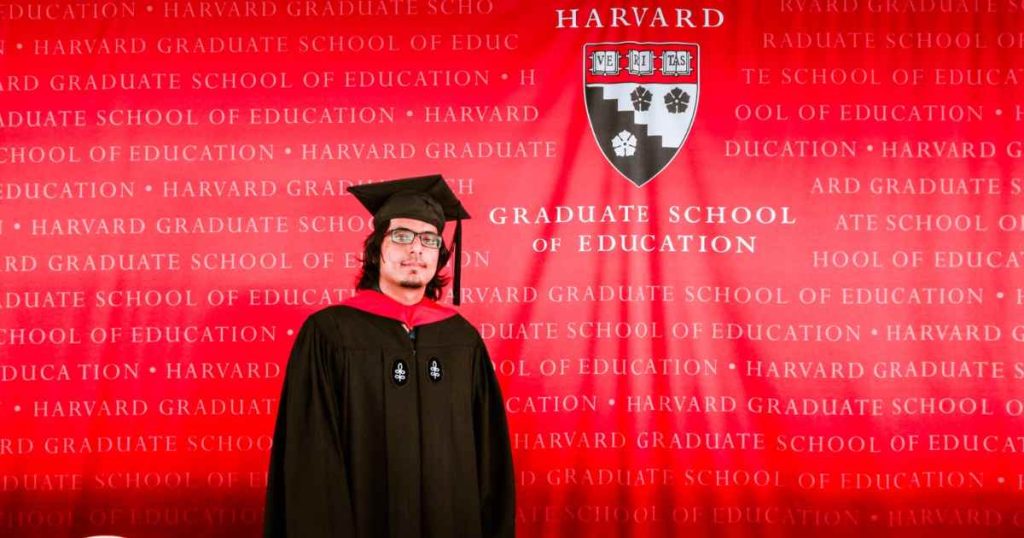
Muzzammil Patel
Similarly, Muzzammil Patel, a 2018-19 Chevening Scholar with an MSc in Public Policy from the University of Edinburgh. Currently serves as a Senior Manager, Global Partnerships at The Citizens Foundation (TCF).
Founded in 1995, this leading non-profit has grown into a nationwide network of 2,033 school units. Transforming the lives of over 300,000 children from marginalised communities in Pakistan through access to quality education.
As part of the Global Partnerships team. Muzzammil has helped mobilise over $750,000 in grant funding through various initiatives to expand educational opportunities for underserved children.
Reflecting on his Chevening journey, Muzzammil shares,“ The experience was nothing short of transformative. It not only opened doors to world-class education but also connected me with a global network of public policy leaders. Which helped me reimagine local challenges through an international lens.”
Having neither travelled outside Pakistan nor the financial means to study abroad. The scholarship reaffirmed Muzzammil’s conviction that education should be a fundamental right for all who work hard, and not a luxury for a select few. At TCF, he actively champions this cause, ensuring that every child in Pakistan reaches their full potential through equal access to quality education.
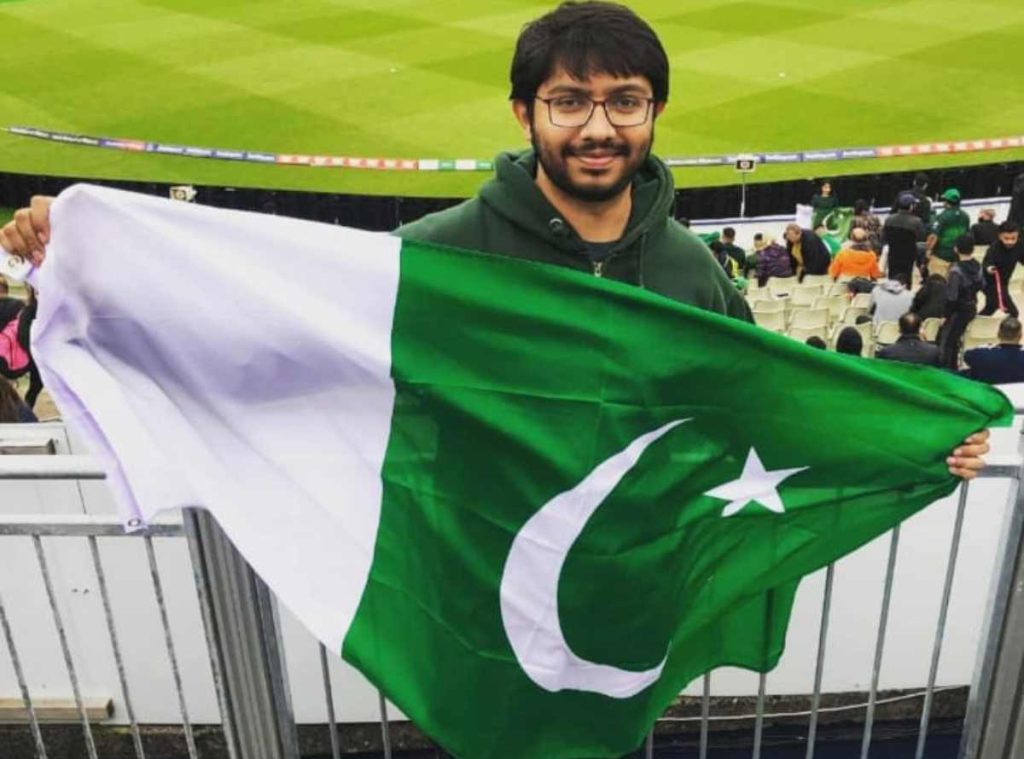
Steering Climate Change and Sustainability in Pakistan
Hammad Naqi Khan
The Director General of WWF-Pakistan has dedicated over 30 years to nature conservation and sustainability. Translating global experience into transformative impact at home. After completing his MSc Engineering in Water and Environmental Management from the University of Birmingham as a Chevening Scholar in 1995–96. Hammad returned to Pakistan with a firm commitment to contribute to the country’s development.
He joined WWF-Pakistan in 1997 as a Senior Environmental Officer, at a time when environmental advocacy was nonexistent in the Global South. However, Hammad’s passion for environmental sustainability quickly set him apart. His vision and dedication led to his promotion. Initially as the founding Director of Freshwater & Toxics and later as Senior Director Programmes. He began to lay the groundwork for specific projects at WWF Pakistan, which have become national models for environmental conservation and sustainability.
Shaping Pakistan’s Green Future
In 2009, Hammad spearheaded the launch of the Better Cotton Initiative (BCI) in Pakistan through WWF, placing the country on the global map for sustainable cotton production. Today, BCI accounts for 22% of the global cotton production. Pakistan ranks as the sixth-largest producer, contributing over 305,000 tonnes of Better Cotton annually. While improving the livelihoods of approximately 1.5 million smallholder farmers in the country.
Though he was briefly transferred to lead WWF’s Global Cotton and Textile Programme in the Netherlands in 2011, in 2014. A deep sense of commitment towards Pakistan brought Hammad back as the Director General of WWF Pakistan. Under his leadership, the organisation grew exponentially, from 100 to over 1,200 staff and from a PKR 450 million to nearly PKR 5 billion budget. Delivering impactful projects in water management, sustainable agriculture, biodiversity conservation, corporate suitability and climate resilience across Pakistan. “I came back to build the environmental ecosystem that was once nonexistent in the country. Giving back has been the most meaningful part of my journey.” Hammad adds.
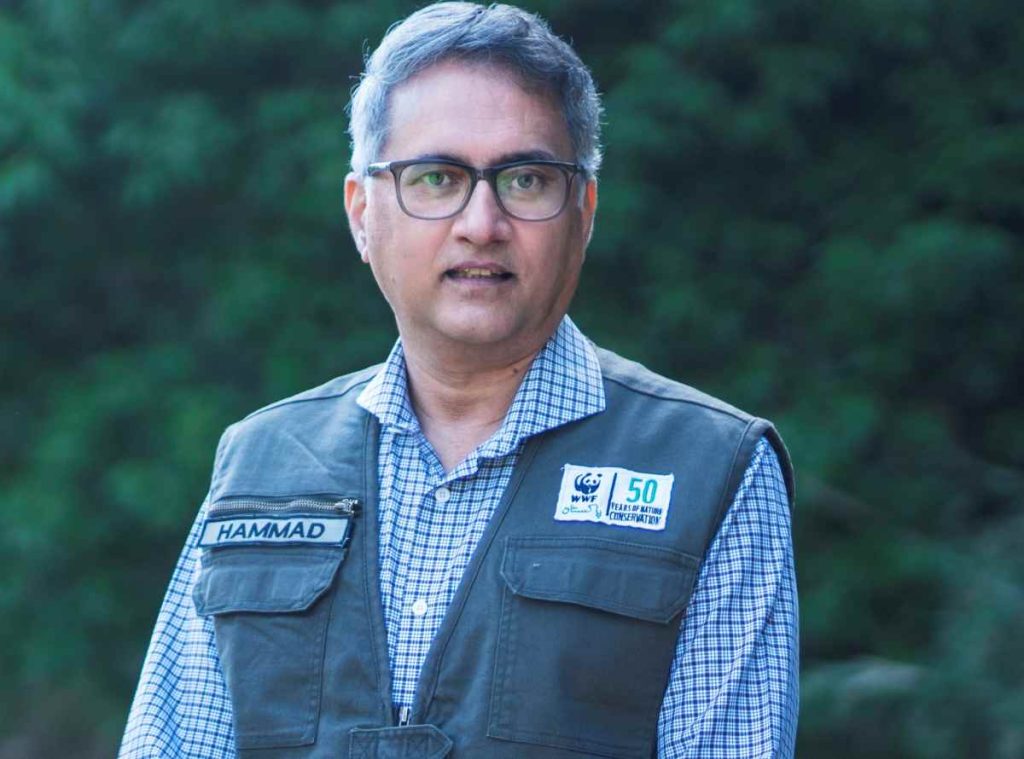
Minha Hanif
A British Council Women in STEM Scholar (2022-2023) with an MSc in Renewable Energy and Clean Technology from the University of Manchester. She is currently the lead of the Carbon Markets desk at Resource Futures. She advances climate-resilient development across both public and private sectors.
Her work spans climate change adaptation, mitigation, and the mobilisation of climate finance. At the heart of her recent efforts are two large-scale climate adaptation projects. One focuses on clean energy, and the other on nature-based solutions. Securing investor backing for both was a significant milestone. But for Minha, the deeper impact lies elsewhere: “These projects hold the potential to transform countless lives through community-driven, sustainable development while also addressing carbon emissions, a pressing challenge for Pakistan – the fifth most vulnerable country to climate change.” She adds.
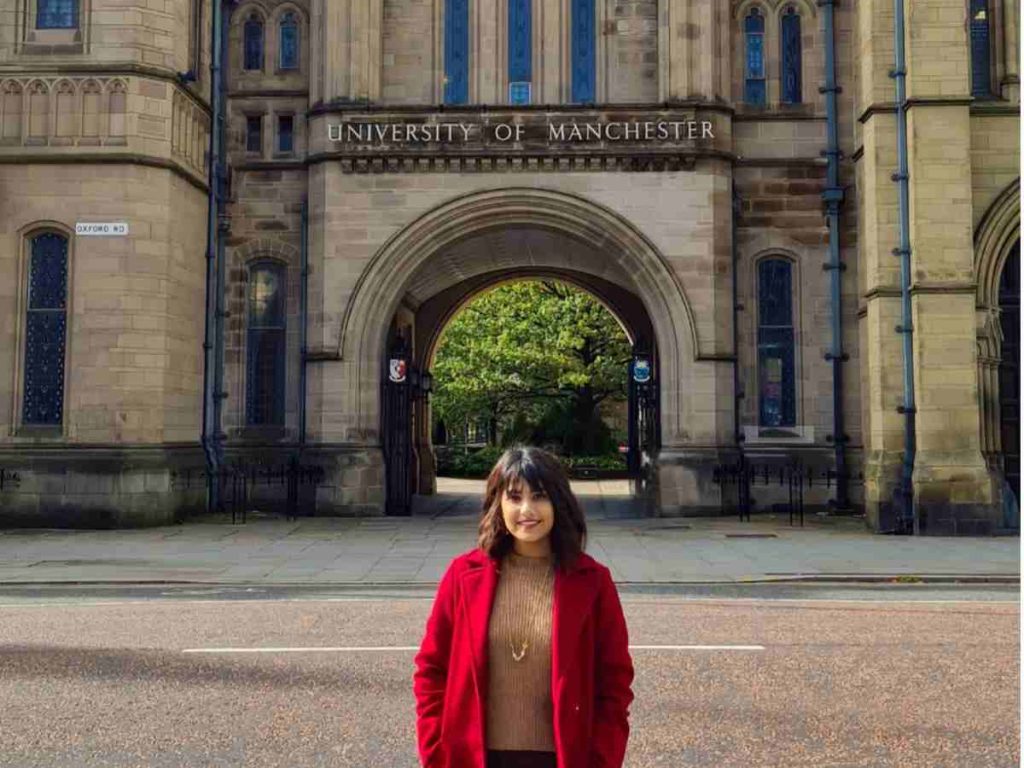
Driving Change Through Evidence-Based Research
Ahsan Mashhood
Commonwealth Scholar, earned his degree in Evidence-Based Social Intervention and Policy Evaluation from the University of Oxford in 2024.
He is currently working as a Research Fellow at Habib University (HU), one of the leading universities known for producing some of the brightest talent in the fields of liberal arts and sciences in Pakistan.
Ahsan’s work focuses on translating academic research into practical policy interventions especially in under-researched areas. “My time at Oxford gave me a strong foundation in evaluating what works, for whom, and under what conditions. Since returning, I’ve applied that lens to projects addressing some of Pakistan’s most pressing challenges—mental health, healthcare access through AI, and gender equity.” He adds.
Many Pakistani students, especially those with limited financial means, often perceive securing an international scholarship or admission in globally renowned institutions as out of reach.
Ahsan has experienced these mental barriers firsthand and successfully navigated them. Now draws on his Commonwealth journey and Oxford education to mentor aspiring scholars.“Being able to return and mentor students has been the most rewarding part of my scholarship experience. I feel like I’m slowly building the kind of support ecosystem I wish I had. And that, to me, is a quiet kind of transformation.”
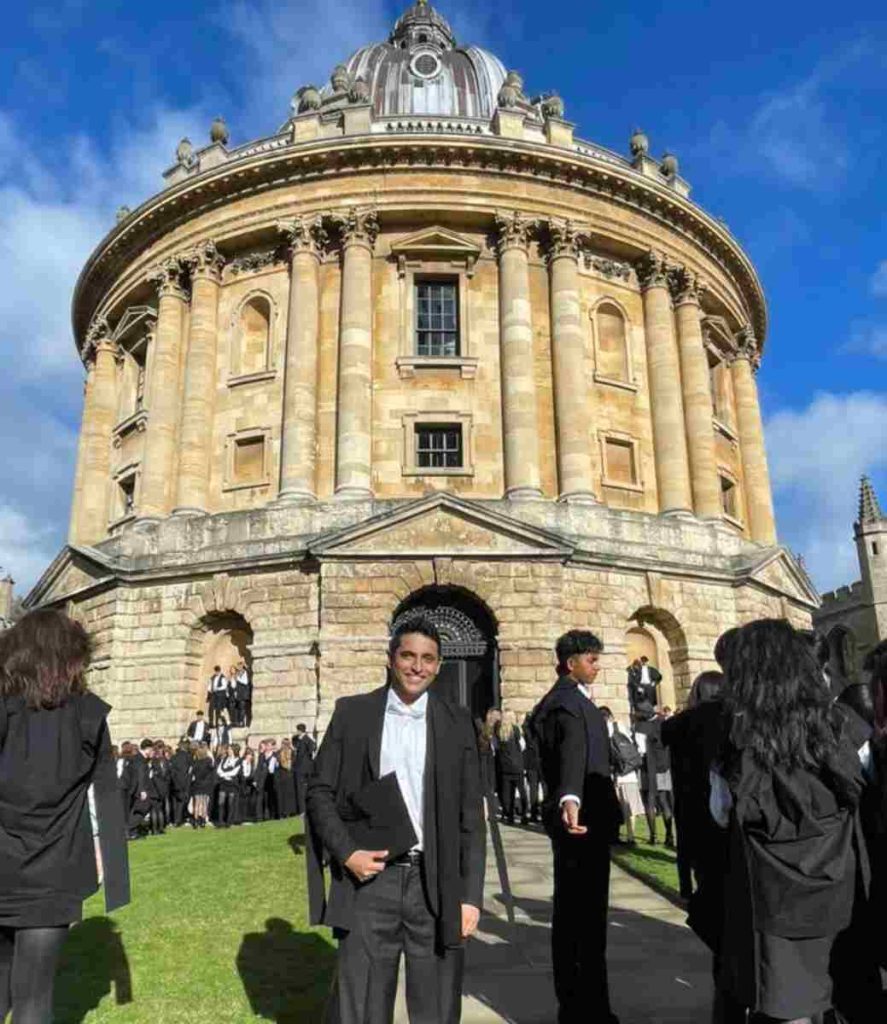
Promoting Gender Equity
Ayesha Amin
A Fulbright Scholar (2017–2018) and a graduate in Social Policy from the University of Pennsylvania, returned home with a vision: to reimagine what equity could look like for women and girls at the grassroots level in Pakistan. In 2018, she founded Baithak, a women-led non-profit working to improve access to Sexual and Reproductive Health and Rights (SRHR) through education, advocacy, and community engagement.
The word “Baithak,” originating from the Urdu term for a sitting room, traditionally refers to a gathering space in South Asian homes where guests are welcomed, stories are shared, and meaningful conversations unfold. Staying true to its name, Baithak fosters safe, intergenerational spaces for women in Pakistan. Through bold conversations and sustained engagement, the organisation is breaking cultural silences around taboo subjects, while building bridges between marginalised communities and the systems of care and policy that have long excluded them.
What began as a passion project has grown into a globally recognised movement. Today, Baithak has positively impacted the lives of over 500,000 Pakistani girls and women. With over 1,200 community baithaks hosted nationwide. The organisation continues to foster open dialogue and create safe spaces for women across local communities.
“The scholarship didn’t just open academic doors; it gave me the confidence to return home with a purpose, to challenge the status quo and to lead with compassion. Baithak is that courage in action,” Ayesha adds.
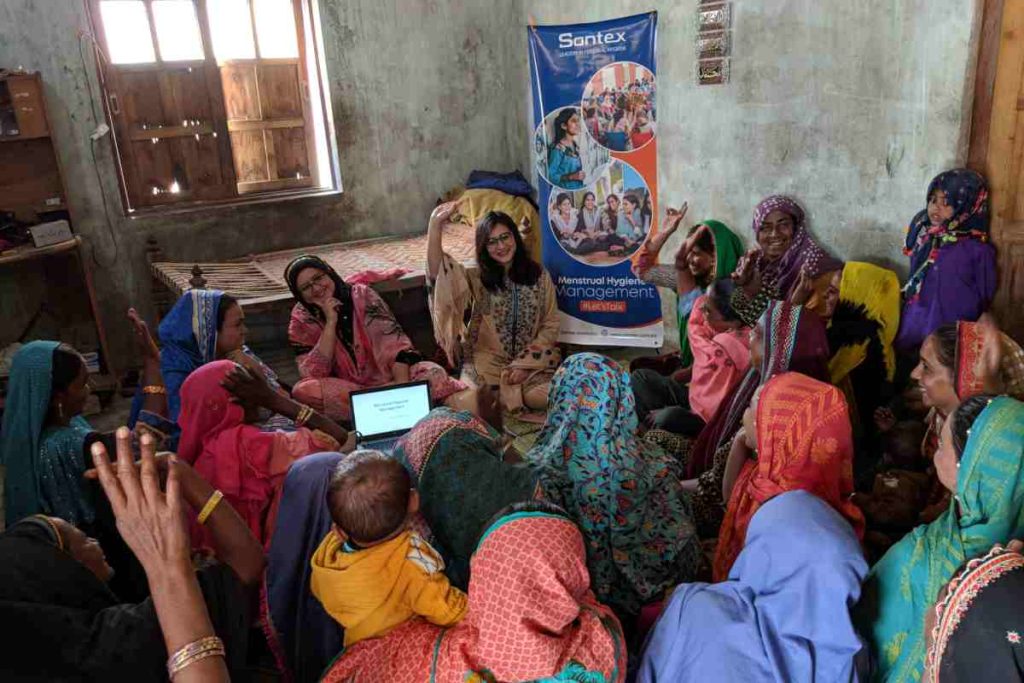
Maha Kamal
A Chevening Scholar from the 2015–2016 cohort, she pursued her MSc in International Public Policy from Queen Mary University of London. She now serves as a Consultant (ERG) for Climate Resilience and Sustainability at Oxford Policy Management. Her work centres on promoting equity, resilience, and sustainable development in climate-vulnerable regions.
Maha is also the Co-Chair of Women in Energy Pakistan, where she actively champions gender equity in the energy and climate sectors. At the recent COP29 in Baku, she represented Pakistan. Sharing insights, particularly on how gender-inclusive policymaking and grassroots leadership are vital for building resilient energy systems. Her presentation at COP29 underscored a powerful message: Local leadership must inform global advocacy, and that women’s voices belong at the centre of climate solutions.
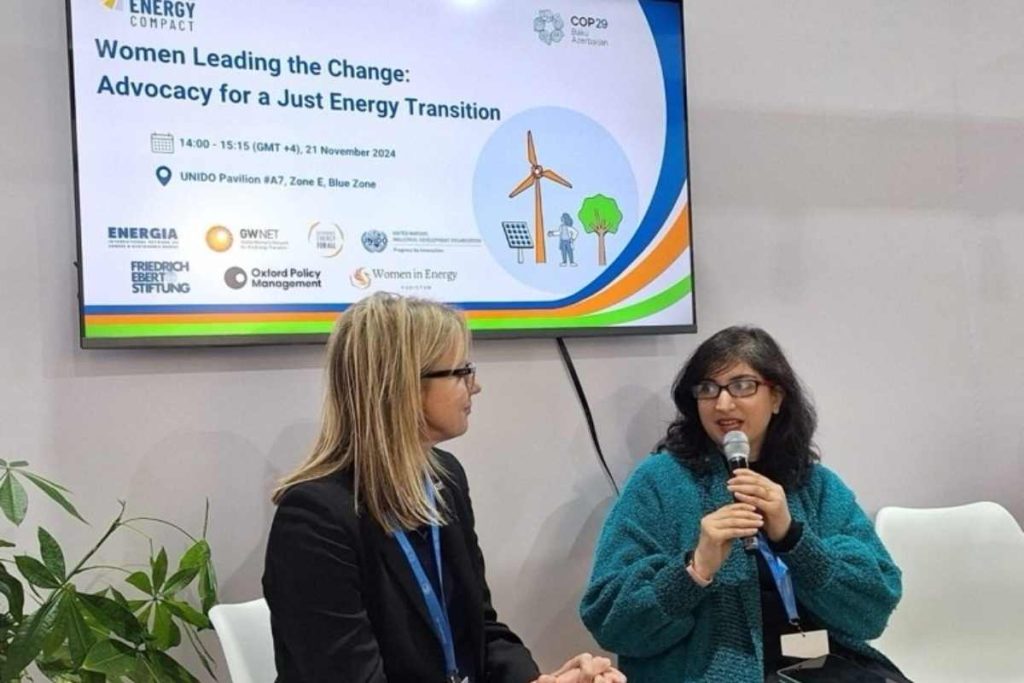
Zoha Javed
Zoha Javed’s journey from the lecture halls of the University of Nottingham to the corridors of power in Islamabad reflects a deep commitment to giving back. A 2023–2024 Commonwealth Shared Scholar, Zoha completed her MA in Public Policy. Now serves as a Young Development Fellow at the Ministry of Planning, Development and Special Initiatives.
A strong advocate for women’s empowerment, Zoha works on initiatives that echo this ethos across the Ministry. Among them is the Young Peace and Development Corps (YPDC). A nationwide youth engagement platform that trains emerging leaders in policy literacy, leadership development, and community impact. The initiative has established 131 chapters across Pakistani universities. Creating 655 student leadership positions, out of which about 300 are held by women.
Similarly, the URAAN Overseas Pakistanis Summer Scholars Programme is an initiative under the Prime Minister’s Youth Ki Uraan campaign. This year, the Ministry inducted 31 scholars, one-third of whom are women, from top global universities into the Ministry. As a communications lead, Zoha supports outreach and storytelling for the programme. Highlighting the pivotal role of Pakistani scholars in contributing to national development.
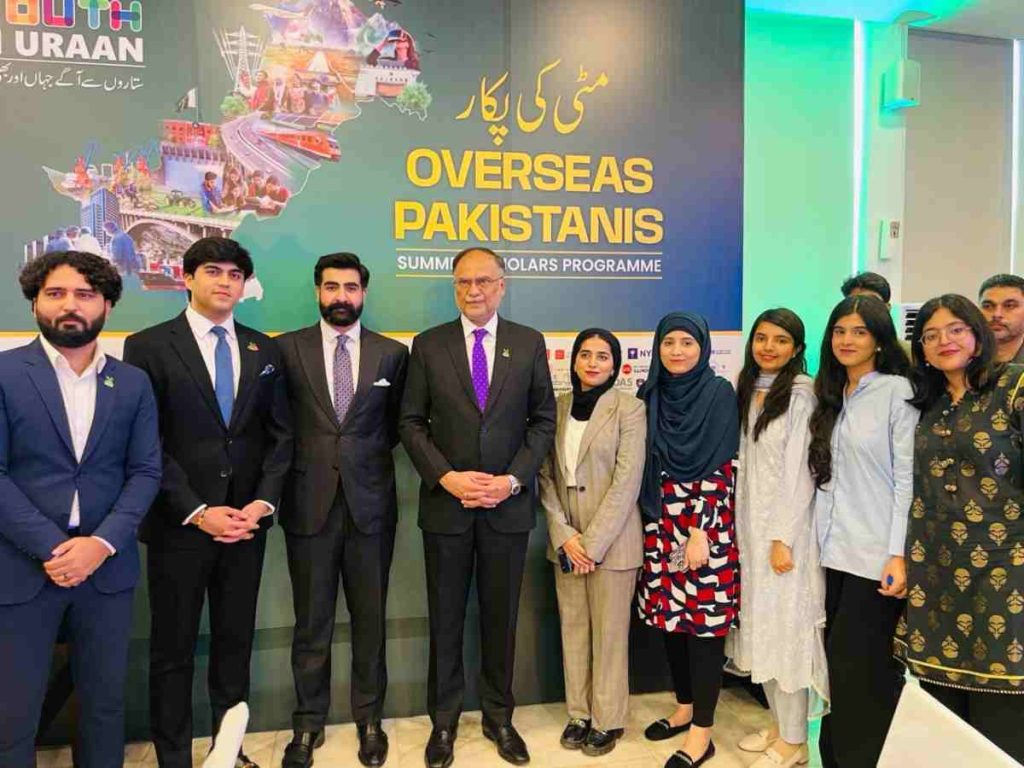
Breaking Barriers
Beyond academic struggles and professional triumphs. The journey of women scholars from Pakistan reflects a deeper narrative of perseverance and purpose. For many, applying for international scholarships is anything but straightforward. From seeking permission to travel alone to navigating cultural resistance, women often find themselves justifying their ambitions at every step of their journeys, compared to their male counterparts. Yet, with every passing year. The number of Pakistani women applying for and successfully winning these scholarships surpasses that of men. In doing so, they are not just making history; they are breaking barriers that once held them back.
“I am the first in my family’s bloodline to complete my education. Hailing from the Malakand region, where early marriage for girls is common. I witnessed many of my cousins leave school at a young age. I knew early on that I wanted to chart a different path to show that women can achieve much more when given a chance.” – Gul Jana Mahboob, Commonwealth Scholar (2023-2024), Gender and International Development, University of Warwick.
Musings
It took me a great deal of time and effort to research and write this piece, not because I was short on great stories, but because they are so rarely told together. As a society, we have yet to take collective pride in our Pakistani scholars. We applaud them in fragments. An individual success story here, a congratulatory LinkedIn post there, but seldom do we recognise them as a powerful force shaping Pakistan’s future.
Every single story shared in this article is a reminder that Pakistan’s strength doesn’t lie solely in its export of talent, but in the brilliance that returns to build something better. This piece offers only a small window into that growing community of exceptional individuals—the brain gain of Pakistan. A force that deserves not just recognition, but celebration.

